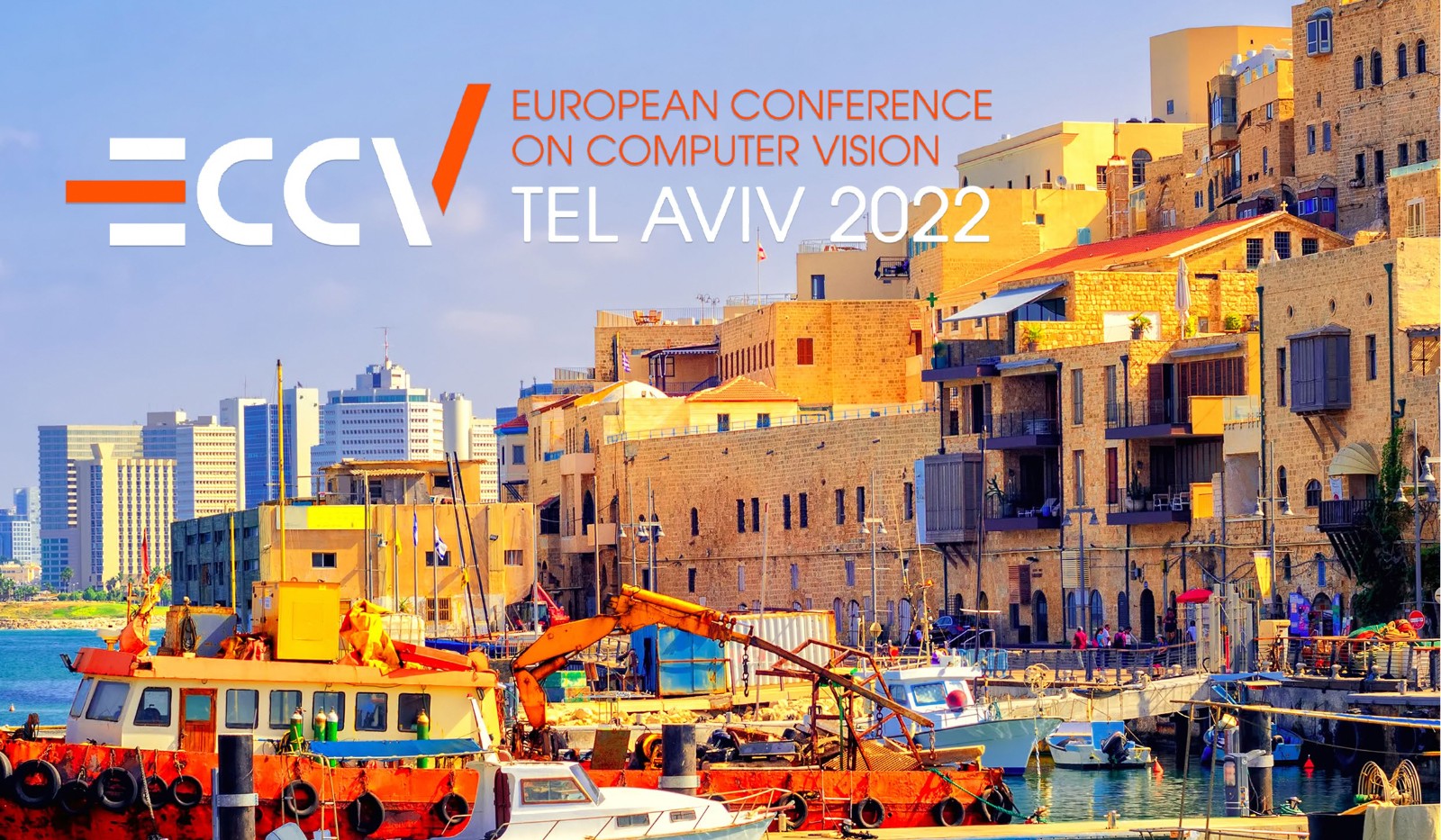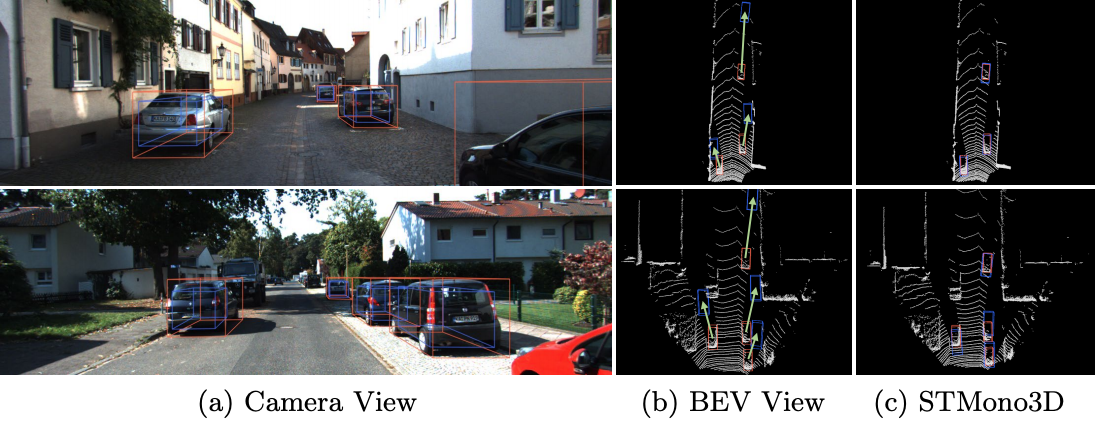- News and Stories
SenseTime Has 70 Papers Accepted at ECCV 2022, Continues to Take the Lead in the Industry
October 27, 2022 – SenseTime attended the biennial European Conference on Computer Vision (ECCV) in Tel-Aviv, Israel during October 23-27, 2022. The ECCV is one of the three top-tier global conferences dedicated to the latest advances in computer vision. The total number of technical papers submitted to this year’s ECCV reached 5,804, with a total of 1,645 research papers accepted. The acceptance rate was only 28%.

With the rising competition to have research papers accepted by the ECCV, SenseTime and its joint laboratories were pleased to take the lead in the industry with 70 research papers accepted this year. The accepted papers focus on solving scientifically and technically challenging issues in areas such as autonomous vehicles, computational photography, video analysis and understanding, transfer learning and multi-modality research. The extensive number of papers accepted at the conference demonstrate SenseTime’s ability and strength for scientific research and innovation in computer vision.
S-Lab for Advanced Intelligence (S-Lab) also won the World Champion in the Image Classification in the Wild (ICinW) ImageNet-1K in pre-training track, held in conjunction with ECCV2022. Over the years, SenseTime and its joint laboratories have published more than 800 academic research papers at the top-tier global conferences on computer vision and have won more than 70 world champions.
Wang Xiaogang, Co-founder of SenseTime and Head of SenseTime Research, said, “Adhering to academic research with real value for the industry and continuously building an open ecosystem is the underlying reason why SenseTime repeatedly achieves outstanding results at top-tier global academic conferences. SenseTime cultivates top-tier talent by supporting employees’ participation in academic activities, hence fostering intellectual exchanges and understanding between industry and academia. We also constantly develop new applications and solve problems through academic research.”
Seventy Research Papers Accepted: Addressing Critical Problems in Industry Applications
SenseTime values the integration of industry, academia and research for the advancement of artificial intelligence. Focusing on addressing industry needs and challenges, SenseTime looks to drive the mutual advancement and synergistic development of the “industry” and “research” through in-depth collaborations with crucial parties.
The 70 research papers accepted in this year’s ECCV not only include basic research, but also address scientific and technical challenges within industry applications. For example, the paper Unsupervised Domain Adaptation for Monocular 3D Object Detection via Self-Training proposes a new unsupervised domain adaptation method STMono3D in the field of monocular 3D object detection. This adaption greatly enhances the transferability and expandability of autonomous driving models.

Depth-shift Illustration
Another area facing great challenges is the poor quality of mobile camera’s nighttime imaging. In the paper D2HNet: Joint Denoising and Deblurring with Hierarchical Network for Robust Night Image Restoration, SenseTime’s research team proposes an integrated solution based on long exposure images and short exposure images via deep learning. This solution outperforms existing industry methods in both qualitative and quantitative analyses.
With video ubiquitous in people’s daily life, users are always looking for ways to improve their video quality. Generating a high frame-rate video from its low frame-rate counterpart may be a good choice. The paper Deep Bayesian Video Frame Interpolation is a crucial approach for upsampling a low frame-rate video to any desired temporal resolution, which has numerous downstream applications like video smoothing, slow-motion replaying, and electronic image stabilization.
The paper HuMMan: Multi-Modal 4D Human Dataset for Versatile Sensing and Modeling introduces HuMMan, a large-scale 4D human dataset with multi-modal data and annotations to facilitate the research on multiple human perception and modeling tasks.
Building an Open Academic Ecology and Keeping Innovation Sustainable
SenseTime actively participates in academic exchange activities. In conjunction with the ECCV 2022, SenseTime organized several ECCV research papers sharing sessions and academic competitions.
SenseTime collaborated with the Global Artificial Intelligence Academic Alliance (GAIAA), the industry representatives from SenseTime and Shanghai Artificial Intelligence Laboratory, as well as research scholars from many top local and international universities, including The Chinese University of Hong Kong (CUHK), Nanyang Technological University (NTU), Tsinghua University, Beihang University (BUAA), and Purdue University to interpret this year’s ECCV research papers, share research experiences and hold extensive discussions on the industry’s future.
SenseTime and S-Lab hosted the “PointCloud-C challenge”, “Mobile Intelligent Photography and Imaging (MIPI) Challenge”, “OmniBenchmark Challenge” and “Panoptic Scene Graph (PSG) Generation Challenge”, which had attracted teams from Tsinghua University, Peking University, The CUHK, Fudan University, Shanghai Jiao Tong University (SJTU), BUAA, National University of Singapore, as well as Huawei, Ant Financial Services Group, and other enterprises and academic institutions.
Over the past few years, SenseTime has been actively participating in the construction of open-source ecology and has successfully released some open-source projects such as OpenMMLab, OpenDILab, OpenGVLab, and OpenXRLab. These open-source projects have been receiving extensive attention from both academic and industrial sectors. In particular, OpenMMLab has accumulated over 60,000 stars on Github.
SenseTime has an extensive and in-depth research cooperation with top-tier global universities such as NTU, SJTU and Zhejiang University. It has also established 16 joint laboratories and accumulated rich talent resources, laying a solid foundation for SenseTime’s full-stack artificial intelligence innovation system.
Going forward, SenseTime will continue to drive cooperation and collaboration by bringing together experts from industry and academia, devoting to high-quality research on computer vision and machine learning technologies to boost the industry’s advancement and long-term performance.







 Return
Return